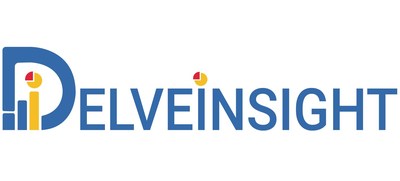B-Cell Inhibitors Market Poised for Significant Advances During the Forecast Period (2025-2034) Across 7MM Due to Novel Drug Launches | DelveInsight
The B-cell inhibitors market is experiencing robust growth, driven by the rising prevalence of the addressable patient population, which includes indications like IgAN, Multiple Sclerosis, Immune Thrombocytopenia, SLE, IgG4-RD, wAIHA, NMOSD, Lupus Nephritis, ANCA Vasculitis, CSU, and others. Increasing R&D investment and regulatory approvals are further accelerating market expansion.
LAS VEGAS, May 29, 2025 /PRNewswire/ -- DelveInsight's B-cell Inhibitor Market Size, Target Population, Competitive Landscape & Market Forecast report includes a comprehensive understanding of current treatment practices, addressable patient population, which includes top indications such as IgAN, Multiple Sclerosis, Immune Thrombocytopenia, SLE, IgG4-RD, wAIHA, NMOSD, Lupus Nephritis, ANCA Vasculitis, CSU, and others. The selected indications are based on approved therapies and ongoing pipeline activity for B-cell inhibitors. The report also provides insights into the emerging B-cell inhibitors, market share of individual therapies, and current and forecasted B-cell inhibitor market size from 2020 to 2034, segmented into 7MM.

Key Takeaways from the B-cell Inhibitor Market Report
- As per DelveInsight's analysis, the total market size of B-cell inhibitors in the 7MM is expected to surge significantly by 2034.
- The report provides the total potential number of patients in the indications, such as IgAN, Multiple Sclerosis, Immune Thrombocytopenia, SLE, IgG4-RD, wAIHA, NMOSD, Lupus Nephritis, ANCA Vasculitis, CSU, and others.
- Leading B-cell inhibitor companies, such as Sanofi, Novartis, Innocare, Genentech, Biogen, Kyverna, MustangBio, and others, are developing novel B-cell inhibitors that can be available in the B-cell inhibitor market in the coming years.
- Some of the key B-cell inhibitors in the pipeline include Tolebrutinib (SAR442168), YTB323 (rapcabtagene autoleucel), Orelabrutinib, Fenebrutinib, BIIB091, Rilzabrutinib, KYV-101, MB-106, and others.
- In April 2025, Amgen announced that the FDA had approved UPLIZNA (inebilizumab) as the first and only treatment for adults living with Immunoglobulin G4-related disease (IgG4-RD). UPLIZNA is a humanized monoclonal antibody that causes targeted and sustained depletion of key cells that contribute to the underlying disease process (autoantibody-producing CD19+ B cells, including plasmablasts and some plasma cells).
Discover which indication is expected to grab the major B-cell inhibitor market share @ B-cell Inhibitor Market Report
B-cell Inhibitor Market Dynamics
The B-cell inhibitor market is undergoing significant transformation, driven by a deepening understanding of B-cell biology and its role in a wide range of immune-mediated and oncological diseases. The market is being shaped by both established monoclonal antibodies (e.g., rituximab, obinutuzumab) and a new wave of oral small molecules (e.g., ibrutinib, zanubrutinib), which offer convenient dosing and broader clinical application.
A key dynamic in this market is the growing competition between next-generation B-cell inhibitors and biosimilars. With first-generation anti-CD20 therapies like rituximab facing patent expirations, biosimilars are entering the market aggressively, offering cost-effective alternatives that are especially attractive to healthcare systems under financial pressure. At the same time, next-generation agents are differentiating themselves through improved efficacy, safety profiles, and novel mechanisms of action, particularly among BTK inhibitors and emerging non-covalent BTK agents that overcome resistance associated with earlier therapies.
Another major factor shaping the market is the expanding indication base. Beyond hematologic malignancies, B-cell inhibitors are finding new applications in autoimmune diseases such as multiple sclerosis (e.g., ocrelizumab), nephrotic syndrome, and systemic lupus erythematosus. This diversification is significantly broadening the market opportunity and prompting increased investment from both large pharmaceutical players and biotech startups. Moreover, ongoing combination studies with other immunomodulators and checkpoint inhibitors suggest potential synergy, particularly in oncology, further enhancing market potential.
However, the market also faces challenges, including the development of resistance mutations, long-term immunosuppression risks, and pricing pressures. Regulatory scrutiny over safety profiles and reimbursement hurdles in some regions may dampen rapid uptake, particularly for high-cost agents. In parallel, as more players enter the space, differentiation based on real-world outcomes, biomarkers, and patient-reported metrics will become increasingly important.
Looking ahead, the B-cell inhibitor market is poised for continued growth, supported by innovation in drug delivery, biomarker-driven patient selection, and expansion into earlier lines of therapy and new disease areas. Companies that can demonstrate value through superior efficacy, safety, and patient convenience will be well-positioned to capture a growing share of this evolving market.
B-cell Inhibitor Treatment Market
B-cell inhibitors are playing an increasingly significant role in managing non-malignant blood disorders by targeting the autoimmune processes that drive these diseases. In conditions like immune thrombocytopenia (ITP) and warm autoimmune hemolytic anemia (wAIHA), abnormal B-cell activity leads to the production of harmful autoantibodies that cause cytopenias. Therapies like rituximab and BTK inhibitors help counter this by depleting B cells or altering their signaling pathways. This reduces autoantibody levels, promotes immune tolerance, and enhances blood cell counts, offering a more targeted alternative to general immunosuppression.
Some of the approved B-cell inhibitors include OCREVUS (Genentech), BENLYSTA (GSK), and TAVALISSE (Rigel Pharmaceuticals). OCREVUS is a monoclonal antibody targeting CD20-positive B cells and is used in treating autoimmune forms of multiple sclerosis, including clinically isolated syndrome, relapsing-remitting multiple sclerosis (RRMS), and active secondary progressive multiple sclerosis (SPMS) in adults. It is also approved for primary progressive multiple sclerosis (PPMS) in adults.
Although its exact mechanism in multiple sclerosis is not fully understood, it is believed to work primarily by modulating the immune system through selective B-cell depletion. OCREVUS was approved by the FDA on March 28, 2017, becoming the first treatment authorized for PPMS. A subcutaneous version, OCREVUS ZUNOVO, was approved in September 2024.
BENLYSTA is a fully human monoclonal antibody delivered intravenously or subcutaneously. It blocks B-lymphocyte stimulator (BLyS), a cytokine that promotes B-cell survival and activity, thereby reducing B-cell proliferation and differentiation. BENLYSTA is the first and only biologic approved for treating Systemic Lupus Erythematosus (SLE) and lupus nephritis. Regulatory approvals include the US (2020 for adults, 2022 for pediatrics), the EU (2021), and Japan (2021).
TAVALISSE (fostamatinib) is an oral spleen tyrosine kinase (SYK) inhibitor used to treat chronic ITP in adults who haven't responded adequately to previous treatments. By targeting the autoimmune mechanisms responsible for platelet destruction, TAVALISSE helps sustain platelet levels and offers a valuable treatment alternative for these patients.
Learn more about the FDA-approved B-cell inhibitors @ B-cell Inhibitor Drugs
Key Emerging B-cell Inhibitor and Companies
Some of the drugs in the pipeline include Rilzabrutinib (Sanofi), KY-101 (Kyverna), and MB-106 (MustangBio), among others.
Rilzabrutinib is an investigational, oral, reversible BTK inhibitor developed using Sanofi's proprietary TAILORED COVALENCY platform. This technology enables selective inhibition of BTK while minimizing off-target effects. Rilzabrutinib holds promise as a potential first- and best-in-class therapy for several immune-mediated conditions, such as warm autoimmune hemolytic anemia and IgG4-related disease, both of which currently lack approved treatments. The drug has been granted orphan drug designation (ODD) in the U.S. for both wAIHA and IgG4-RD. Additionally, it is under regulatory review in the U.S. and EU for immune thrombocytopenia (ITP), with an FDA decision anticipated by August 29, 2025. Rilzabrutinib also holds ODD for ITP in the U.S., EU, and Japan, along with Fast Track Designation (FTD) in the U.S.
KYV-101 is an autologous, fully human CAR T-cell therapy targeting CD19 and represents the lead candidate in the cell therapy pipeline. It is being developed for a variety of autoimmune disorders, with active clinical programs in both neurology and rheumatology. Ongoing trials include Phase II studies for stiff person syndrome, multiple sclerosis, and myasthenia gravis, along with a Phase I/II study for systemic sclerosis. Furthermore, KYV-101 is being tested in two multicenter, open-label Phase I/II trials in the U.S. and Germany for lupus nephritis. The therapy has received multiple regulatory designations supporting accelerated development, including Fast Track Designation for lupus nephritis, MS, and myasthenia gravis; Regenerative Medicine Advanced Therapy (RMAT) designation; and Orphan Drug Designation in the U.S. and EU for lupus nephritis and systemic sclerosis.
MB-106, a CD20-directed CAR T-cell therapy developed by Mustang Bio in collaboration with Fred Hutch, was initially targeted at blood cancers but is now being repositioned for autoimmune disease treatment. As of March 2025, 73 patients had been treated in ongoing Phase I studies, showing a strong safety profile and high efficacy, including a 90% overall response rate in Waldenström macroglobulinemia (WM). However, due to financial constraints, Mustang discontinued its internal MB-106 trials in mid-2024. Going forward, development will focus on autoimmune indications, with a Fred Hutch–led Phase I investigator-sponsored trial expected to begin in late 2025. This shift reflects a strategic reallocation of resources while continuing to pursue promising opportunities in autoimmune therapies. In March 2024, MB-106 received RMAT designation from the FDA for treating relapsed or refractory CD20-positive WM and follicular lymphoma.
The other B-cell inhibitors in the pipeline include
- Tolebrutinib (SAR442168): Sanofi
- YTB323 (rapcabtagene autoleucel): Novartis
- Orelabrutinib: Innocare
- Fenebrutinib: Genentech
- BIIB091: Biogen
The anticipated launch of these emerging therapies are poised to transform the B-cell inhibitor market landscape in the coming years. As these cutting-edge therapies continue to mature and gain regulatory approval, they are expected to reshape the B-cell inhibitor market landscape, offering new standards of care and unlocking opportunities for medical innovation and economic growth.
To know more about B-cell inhibitor clinical trials, visit @ B-cell Inhibitor Treatment Drugs
B-cell Inhibitor Overview
B-cell inhibitors are therapeutic agents designed to regulate the function of B lymphocytes, which are key players in the immune system and antibody production. These drugs target various molecules such as CD20, Bruton's tyrosine kinase (BTK), PI3Kδ, CD19, BAFF/BLyS, and APRIL, aiming to suppress B-cell activity in conditions like B-cell lymphomas and autoimmune diseases.
They function through different mechanisms, including eliminating B cells by targeting surface proteins like CD20, disrupting signaling pathways like BTK, and blocking survival factors such as BLyS and APRIL. These approaches help restrain overactive B-cell responses and prevent immune system dysfunction.
B-cell inhibitors play a vital role in treating a range of conditions, including B-cell malignancies, autoimmune disorders, renal diseases, and other hematological conditions, where uncontrolled B-cell activity can lead to inflammation and tissue damage.
B-cell Inhibitor Epidemiology Segmentation
The report outlines the total potential patient population across various indications, including IgAN, Multiple Sclerosis, Immune Thrombocytopenia, SLE, IgG4-RD, wAIHA, NMOSD, Lupus Nephritis, ANCA Vasculitis, CSU, and others. It also details the number of patients currently receiving treatment for these conditions.
The B-cell inhibitor market report proffers epidemiological analysis for the study period 2020–2034 in the 7MM, segmented into:
- Total Eligible Patient Pool by Indication
- Total Treated Patient Pool by Indication
B-cell Inhibitor Report Metrics | Details |
Study Period | 2020–2034 |
B-cell Inhibitor Report Coverage | 7MM [The United States, the EU-4 (Germany, France, Italy, and Spain), the United Kingdom, and Japan] |
Indications Covered in B-cell Inhibitor Report | IgAN, Multiple Sclerosis, Immune Thrombocytopenia, SLE, IgG4-RD, wAIHA, NMOSD, Lupus Nephritis, ANCA Vasculitis, CSU, and others. |
Key B-cell Inhibitor Companies | Sanofi, Novartis, Innocare, Genentech, Biogen, Kyverna, MustangBio, and others |
Key B-cell Inhibitors | Tolebrutinib (SAR442168), YTB323 (rapcabtagene autoleucel), Orelabrutinib, Fenebrutinib, BIIB091, Rilzabrutinib, KYV-101, MB-106, and others |
Scope of the B-cell Inhibitor Market Report
- B-cell Inhibitor Therapeutic Assessment: B-cell Inhibitor current marketed and emerging therapies
- B-cell Inhibitor Market Dynamics: Conjoint Analysis of Emerging B-cell Inhibitor Drugs
- Competitive Intelligence Analysis: SWOT analysis and Market entry strategies
- Unmet Needs, KOL's views, Analyst's views, B-cell Inhibitor Market Access and Reimbursement
Discover more about B-cell inhibitor in development @ B-cell Inhibitor Clinical Trials
Table of Contents
1. | Key Insights |
2. | Report Introduction |
3. | Executive Summary |
4. | Key Events |
5. | Market Forecast Methodology |
6. | B-cell Inhibitor Market Overview at a Glance in the 7MM |
6.1. | Market Share (%) Distribution by Therapies in 2020 |
6.2. | Market Share (%) Distribution by Therapies in 2034 |
7. | B-cell Mutation: Background and Overview |
8. | Treatment and Management |
9. | Target Patient Pool |
9.1. | Key Findings |
9.2. | Assumptions and Rationale: 7MM |
9.3. | Epidemiology Scenario in the 7MM |
9.3.1. | Total Eligible Patient Pool by Indication in the 7MM |
9.3.2. | Total Treated Patient Pool by Indication in the 7MM |
10. | Marketed Therapies |
10.1. | Key Competitors |
10.2. | OCREVUS (ocrelizumab): Genentech |
10.2.1. | Product Description |
10.2.2. | Regulatory milestones |
10.2.3. | Other developmental activities |
10.2.4. | Clinical development |
10.2.5. | Safety and efficacy |
10.3. | BENLYSTA (belimumab): GSK |
10.3.1. | Product Description |
10.3.2. | Regulatory milestones |
10.3.3. | Other developmental activities |
10.3.4. | Clinical development |
10.3.5. | Safety and efficacy |
10.4. | TAVALISSE (fostamatinib): Rigel Pharmaceuticals |
10.4.1. | Product Description |
10.4.2. | Regulatory milestones |
10.4.3. | Other developmental activities |
10.4.4. | Clinical development |
10.4.5. | Safety and efficacy |
List to be continued in the report | |
11. | Emerging Therapies |
11.1. | Key Competitors |
11.2. | Rilzabrutinib: Sanofi |
11.2.1. | Product Description |
11.2.2. | Other developmental activities |
11.2.3. | Clinical development |
11.2.4. | Safety and efficacy |
11.3. | KY-101: Kyverna |
11.3.1. | Product Description |
11.3.2. | Other developmental activities |
11.3.3. | Clinical development |
11.3.4. | Safety and efficacy |
11.4. | MB-106: Mustangbio |
11.4.1. | Product Description |
11.4.2. | Other developmental activities |
11.4.3. | Clinical development |
11.4.4. | Safety and efficacy |
List to be continued in the report | |
12. | B-cell Inhibitor: Seven Major Market Analysis |
12.1. | Key Findings |
12.2. | Market Outlook |
12.3. | Conjoint Analysis |
12.4. | Key Market Forecast Assumptions |
12.5. | Total Market Size of B-cell Inhibitor in the 7MM |
12.6. | Market Size of B-cell Inhibitor by Indication in the 7MM |
12.7. | The United States Market Size |
12.7.1. | Total Market Size of B-cell Inhibitor in the United States |
12.7.2. | Market Size of B-cell Inhibitor by Therapies in the United States |
12.8. | EU4 and the UK Market Size |
12.8.1. | Total Market Size of B-cell Inhibitor in EU4 and the UK |
12.8.2. | Market Size of B-cell Inhibitor by Therapies in EU4 and the UK |
12.9. | Japan Market Size |
12.9.1. | Total Market Size of B-cell Inhibitors in Japan |
12.9.2. | Market Size of B-cell Inhibitors by Therapies in Japan |
13. | SWOT Analysis |
14. | KOL Views |
15. | Unmet Needs |
16. | Market Access and Reimbursement |
17. | Appendix |
17.1. | Bibliography |
17.2. | Report Methodology |
18. | DelveInsight Capabilities |
19. | Disclaimer |
20. | About DelveInsight |
Related Reports
Neuromyelitis Optica Spectrum Disorder Market
Neuromyelitis Optica Spectrum Disorder Market Insights, Epidemiology, and Market Forecast – 2034 report delivers an in-depth understanding of the disease, historical and forecasted epidemiology, as well as the market trends, market drivers, market barriers, and key NMOSA companies, including RemeGen, Alexion Pharmaceuticals, Reistone Biopharma, Nihon Pharmaceutical, Harbour BioMed, Bio-Thera Solutions, Abide Therapeutics, Bionure, TG Therapeutics, ENDECE, Boston Pharmaceuticals, NovelMed, among others.
Systemic Lupus Erythematosus Market
Systemic Lupus Erythematosus Market Insights, Epidemiology, and Market Forecast – 2034 report delivers an in-depth understanding of the disease, historical and forecasted epidemiology, as well as the market trends, market drivers, market barriers, and key SLE companies, including Biogen, Novartis, MorphoSys, Idorsia Pharmaceuticals, Viatris, RemeGen, UCB Pharma, Genentech, Bristol Myers Squibb, AbbVie, among others.
IgG4-Related Disease Market Insights, Epidemiology, and Market Forecast – 2034 report delivers an in-depth understanding of the disease, historical and forecasted epidemiology, as well as the market trends, market drivers, market barriers, and key IgG4-RD companies, including Zenas BioPharma, Bristol Myers Squibb, Amgen, Sanofi, among others.
Chronic Spontaneous Urticaria Market
Chronic Spontaneous Urticaria Market Insights, Epidemiology, and Market Forecast – 2034 report delivers an in-depth understanding of the disease, historical and forecasted epidemiology, as well as the market trends, market drivers, market barriers, and key CSU companies, including Celldex Therapeutics, Novartis, Sanofi, Incyte, Jasper Therapeutics, InflaRx, Evommune, Otsuka Holdings, among others.
About DelveInsight
DelveInsight is a leading Business Consultant and Market Research firm focused exclusively on life sciences. It supports pharma companies by providing comprehensive end-to-end solutions to improve their performance. Get hassle-free access to all the healthcare and pharma market research reports through our subscription-based platform PharmDelve.
Contact Us
Shruti Thakur
info@delveinsight.com
+14699457679
Logo: https://mma.prnewswire.com/media/1082265/3528414/DelveInsight_Logo.jpg
SOURCE DelveInsight Business Research, LLP

